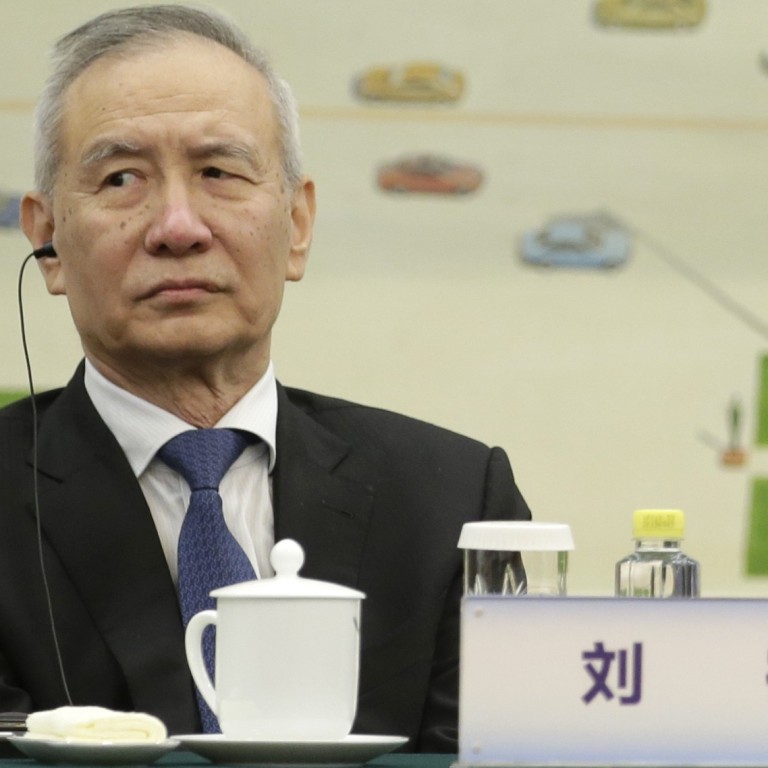
China will make state economy ‘stronger, better and bigger’, top trade negotiator Liu He says
- The preferential treatment China gives its state-owned enterprises (SOEs) is one of the key disputes between Washington and Beijing
- Despite progress made on an interim deal, the comments suggest a long-term solution to US-China trade war will be harder to find
China signalled on Friday that it has no plans to give up its government-led economic model or weaken the role of its state-owned enterprises, a change the United States has stipulated as one of its key demands in the ongoing trade war negotiations.
“We will promote state-owned economy reforms and structural adjustments, and invest more in industries related to national security, serving the national strategic goals,” Vice-Premier Liu He – China’s top trade negotiator –said in an article published in the Communist Party mouthpiece, the People’s Daily.
We will promote state-owned economy reforms and structural adjustments, and invest more in industries related to national security, serving the national strategic goals
Rather, Liu said that Beijing planned to make the state economy “stronger, better and bigger”.
His comments echo a pledge made by the Communist Party’s Central Committee at the end of its fourth plenary session at the end of October.
SOEs have long been the central pillar of China’s economic model and since the start of the trade war have played a major role in shoring up a weakened economy and maintaining employment levels.
In an apparent effort to address those concerns, Liu’s article sought to highlight the merits of both the public and private sectors.
“The public economy and the non-public economy are both important components in developing China’s socialist market economy and in allocating resources,” he said.
“The transition from a highly centralised planned economic system to a socialist market economic system is being realised by combining together an effective market mechanism with a degree of macroeconomic regulation.”
Li Jin, chief researcher with the China Enterprise Research Institute, said the government no longer regarded a socialist economy and a market economy as opposing forces in China’s development.
This is a breakthrough. The allocation of resources based on a socialist economic market system is a liberalisation. Now the problem of integrating the social system and a market economy is basically solved
“This is a breakthrough,” he said. “The allocation of resources based on a socialist economic market system is a liberalisation. Now the problem of integrating the social system and a market economy is basically solved.”
Louis Kuijs, head of Oxford Economics’ Asia research, said that Liu’s message that China was unwilling to separate state and private sector commercial activities was a major problem for Western countries.
He said that China’s state-led model had been successful in driving economic development over the past four decades but it would be difficult for Beijing to continue relying on it if it wanted to fully integrate into the global economy.
Western countries generally accepted the principle that government ministries were both regulators and arms of the market, he said, but in China, a ministry might also play the role of lobbying for SOEs.
“This is problematic because countries will worry about the reason why SOEs buy certain companies, whether it is for commercial purposes or whether they are acting as an arm of the state,” Kuijs said.

